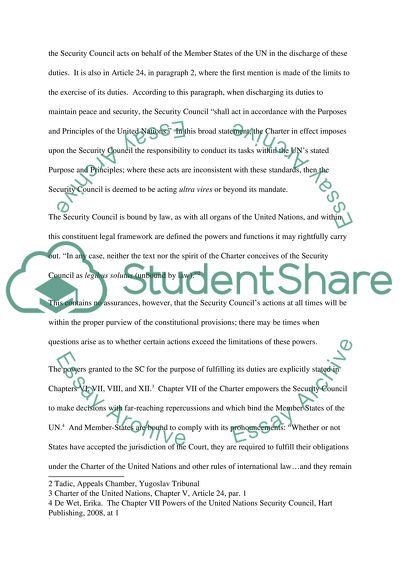Cite this document
(“Limits to the Power of the Security Council Essay”, n.d.)
Limits to the Power of the Security Council Essay. Retrieved from https://studentshare.org/law/1447567-limits-to-the-power-of-the-security-council-please
Limits to the Power of the Security Council Essay. Retrieved from https://studentshare.org/law/1447567-limits-to-the-power-of-the-security-council-please
(Limits to the Power of the Security Council Essay)
Limits to the Power of the Security Council Essay. https://studentshare.org/law/1447567-limits-to-the-power-of-the-security-council-please.
Limits to the Power of the Security Council Essay. https://studentshare.org/law/1447567-limits-to-the-power-of-the-security-council-please.
“Limits to the Power of the Security Council Essay”, n.d. https://studentshare.org/law/1447567-limits-to-the-power-of-the-security-council-please.


